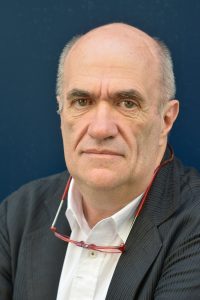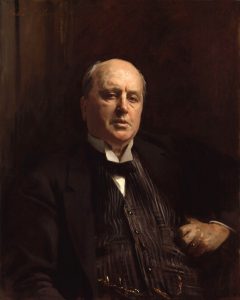How to Write an Undramatic but Engaging Novel
I’ve written before (in Two Ways to Write a Novel, parts I and II, in this column) about a non-cinematic kind of novel, one which tells more than shows, that prioritises interiority and language over action and dialogue. Colm Toibin’s novel The Master (2004) about Henry James, strikes me as one that exemplifies that approach. In any case, how could you make James’s life dramatic? He had no openly sexual relationships. He lived through the Civil War, and two of his brothers fought in it, but he declined to do so. He travelled in Europe and knew many famous figures, but was apparently so discreet and reticent by nature that he seldom quarrelled or even disagreed with anyone. In fact, his life seems to have consisted mainly in observing the lives of others, and using those observations as grist for his fictional mill. But how could anyone make a novel out of such unpromising material?
Toibin does not set out by establishing his protagonist’s over-arching desire, as writers are instructed they must (in creative writing programs, and by agents and editors) in order to drive the plot. Instead we first encounter Henry James on a trip to Ireland, where he is a guest of English aristocrats, and meets a manservant named Hammond whom he finds himself getting fond of, in ways that aren’t completely clear. Nothing sexual happens between the two, and yet there is an apparent tension between the two that certainly seems erotic, in a very Victorian, repressed way. Later in the novel, James meets a young American sculptor in Rome, Hendrik Andersen, and the erotic tension is stronger still. And yet, although Toibin is interested in exploring his subject’s homosexuality, in the most subtle and understated (almost Victorian) way imaginable, this is not the focus of the novel. More important, really, are Henry’s relationships with women: his sister Alice, a young intellectual woman he knows as a young man, Minnie Temple, and later with the American novelist Constance Fenimoore Woolson. With all of these James had close relationships, intellectually, and Toibin implies that both Temple and Fenimoore Woolson may have expected more of him. But mostly, Toibin is interested in how these relationships inspired James’s stories and novels. In fact the whole novel is a speculative reconstruction of Henry James’s inner and creative life. Although it’s not explicitly stated, it’s not going too far to suggest that the richness of the inner life is the result of the poverty of the outer. Toibin’s novel is thus a study in introversion and its benefits for the artist.
Maybe this sounds boring–it’s hard to imagine how Toibin might have spun his story in a query letter, although no doubt he didn’t need to, as he was already an established writer in 2004–but in fact the novel is fascinating, as a psychological study, for the evocation of the period, and as an investigation of the founts of creativity. What it isn’t, is a story. And Toibin admits that he is no storyteller. Is that a weakness? For many people–most people in the publishing industry nowadays, I think–it would be. And yet Toibin is one of the most consistently successful of contemporary literary fiction writers, so maybe the reading public, or a substantial portion of it, is more subtle, more intelligent, and more profound, than most agents and editors seem to think. I would like to see more novels that take the kind of risks that The Master does.
Garry Craig Powell
Garry Craig Powell, until 2017 professor of Creative Writing at the University of Central Arkansas, was educated at the universities of Cambridge, Durham, and Arizona. Living in the Persian Gulf and teaching on the women’s campus of the National University of the United Arab Emirates inspired him to write his story collection, Stoning the Devil (Skylight Press, 2012), which was longlisted for the Frank O’Connor International Short Story Award and the Edge Hill Short Story Prize. His short fiction has appeared in Best American Mystery Stories 2009, McSweeney’s, Nimrod, New Orleans Review, and other literary magazines. Powell lives in northern Portugal and writes full-time. His novel, Our Parent Who Art in Heaven, was published by Flame Books in 2022, and is available from their website, Amazon, and all good bookshops.
- Web |
- More Posts(79)

